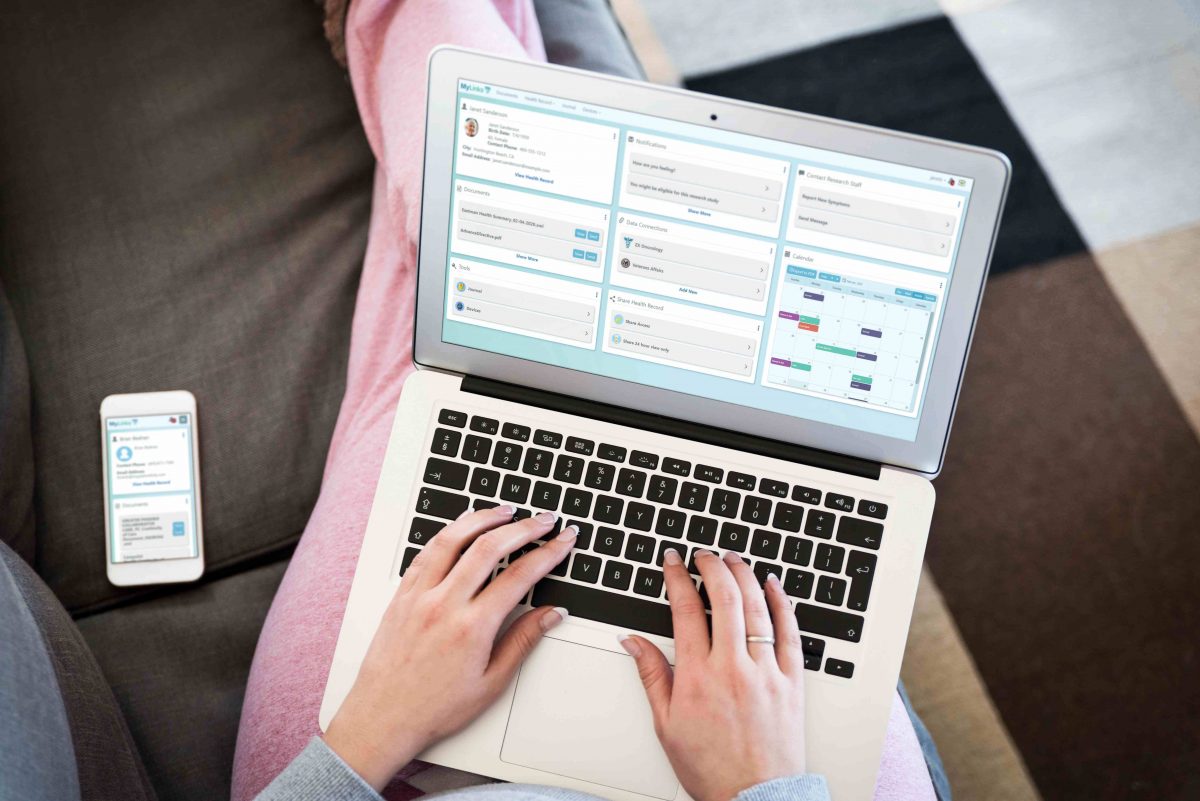Cancer is scary.
You feel like your life is out of control and often in the hands of complete strangers. You hope they have all the information they need to save your life.
Gathering data from all your previous care givers to make sure the oncologists and surgeons have all the information is a bit overwhelming:
- Multiple calls to all your doctors to request records
- Driving to multiple places
- Waiting in long lines
- Getting stacks of paper with your medical history handed to you (sometimes being scolded that you “will have to pay for the next copy”)
You feel there is no way your new oncologist will read these hundreds of pages. You look at the stack and wonder if there was a hint of your developing cancer in there…and no one noticed. You wonder if something is missing in the records that is really important for your care team. You notice some information is incorrect and some pages contradict other pages.
You were given the task of collecting all your records, and it is important for saving your life. So, you do it…but think there surely must be better way.
The importance of ME (the patient) in interoperability
I hear about “data interoperability” and how it can save lives and decrease costs. But in my experience, I have been the carrier of health information between my physicians. My data didn’t flow to other medical practices that needed it, and certainly didn’t flow to me. Medical organizations are working on getting better at data flowing between them. But they don’t seem to really understand the importance to ME concerning data flowing to ME.
Too many excuses concerning why patients should not get their data
I hear some say that patients really don’t want their data, or won’t understand their data, or should not have it because they might give it to someone who might sell their data. I even had one clinic tell me they did not want their patients to see all their data because they “were already in trouble with insurance companies because their data had so many errors”. They didn’t want patients to also be angry with them! They were making decisions about my care based on information they knew could be wrong. Instead of letting patients see and correct problems, they hide the data. Isn’t that a patient safety problem?
What really is “Patient-Centered Care”?
I hear clinicians say, “We practice patient-centered care”. I am not sure what they mean by that. It appears they mean that they (the clinicians) talk to each other about me and come up with the plan. How is that different from the last 300 years? I don’t want my care team to do something TO me. I want them to do something WITH me as part of the team.
- I want to be an equal participant in this plan.
- I want to see all the information the doctors see and create…and I don’t want to have to wait in lines or get paper copies.
- I want my own “mini EHR” fully under my control that I can use to aggregate my data, add missing items, correct information, and share with my caregivers and family.
- I want to have easy contact with my team while I go through the next months of treatment.
- I want to know someone is really listening and paying attention.
Most importantly, I don’t want to find out in the future that they missed something in my chart because they were too busy with other patients. If I am really at the center of the care team, I should have full access to my records and I can make sure nothing is missed.
Organizations who do not include patients in interoperability will lose patients
I have decided to move my care away from people who don’t see the value in patients having full access to their records. I will choose organizations who respect me as a full member of the care team and with full rights to my data. I don’t think I am the only one who feels that way.
We are in a new age now. Not only is technology changing, but patients/consumers are changing. New technology standards (FHIR) are making data flow and breaking down the silos. New laws have been created to enforce the sharing of health information with patients.
Healthcare centers, in the midst of these new technology breakthroughs, please don’t forget about the importance of including patients in your interoperability plan. Respect your patients and their rights to all their data. Don’t make it hard for them to gather or share it. It really could be the difference between life and death for them.
To know more about our products to improve the sharing of data between patients and providers, please visit our websites: MyPatientLink.com and MyLinks.com.




